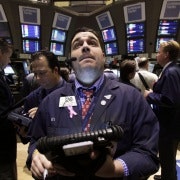Wining over solar
Is there any correlation between trade in solar panels and wine? That is the question trade analysts were asking when the imposition last Tuesday of anti-dumping tariffs on solar panel imports from China by the European Union was followed, on Wednesday, by the announcement of an anti-subsidy and anti-dumping investigation by China on wine imports from the European Union.
The 27-nation EU decided to impose anti-dumping tariffs on imports of crystalline silicon PV panels, cells and wafers from China. Effective from June 6 at an initial lower rate of 11.8 per cent for two months, they will range from 37.2 to 67.9 per cent after that period, depending on the exporter. Final tariffs are to be determined in December.
"Our action today is an emergency measure to give life-saving oxygen to a business sector in Europe that is suffering badly from this dumping," European Trade Commissioner Karel De Gucht told reporters. There was also a purpose to the way the dumping action is being structured, with a very mild rate to start. "It provides a clear window of opportunity for negotiations, but the ball is now in China’s court,” said De Gucht.
If imposition of duties is presented as an opportunity for a negotiated settlement, then China did not want to be left behind on making a similar offer. A day later, China's Ministry of Commerce announced the start of a probe on wine imports, while "firmly" opposing the EU decision in the same statement.
Though there is the possibility of further retaliation from either side, the duties imposed by EU were less-than-expected and the language emanating from Beijing has been fairly mild. A Chinese Commerce Ministry spokesman said that China did not want to see the solar dispute affect the broader relationship. “Both sides understand the relationship is very important, having a trade dispute is quite normal when you have such a big trade flow. It’s more likely they will reach an agreement than a trade war,” he said.
There will be an impact on projects on the ground, due to the 11.8 per cent rise in module prices. Some projects in Germany, UK and Italy will be cancelled, while others will be rushed forward before the tariffs rise further, according to Bloomberg New Energy Finance analysts.
The other major news from the policy front came from Romania, which approved the holding back of green certificates for clean energy from July 1. These will be issued in 2017 and 2018, but since no one is ruling out another change to the detriment of investors, the mood is sombre.
In the UK, the massive £25 billion ($A37 billion) Severn tidal barrage project came under a cloud when a government report said that the proposed project does not provide value for money and may pose a risk to the environment. Tim Yeo, the chairman (until this week) of the House of Commons Energy and Climate Change Committee, said that the project could not be recommended as it stands. The project is being developed by Hafren Power.
Clean energy news from across the Atlantic was much more buoyant. Private equity firm Actis and Mainstream Renewable Power are to develop $US1.4 billion of wind and solar projects in Chile, building 600MW of capacity by 2016. Mexico announced a National Climate Change Strategy that sets targets for the next 10, 20 and 40 years. It aims to halve carbon dioxide emissions by 2050, from 2010 levels.
One way to halt global emissions, and global warming, is to focus on energy efficiency, according to the International Energy Agency. It outlined four proposals to keep global warming closer to the globally agreed 2-degree Centigrade limit: energy efficiency measures in building, industry and transport; limiting construction and use of least-efficient coal-fired power plants; reduction of emissions from the upstream oil and gas industry and partial phase out of fossil-fuel consumption subsidies.
"Fossil fuel subsides in 2011 were equivalent to an incentive of $US110 per tonne of carbon dioxide," the IEA said in a presentation.
EU carbon
European carbon advanced last week as permit auctions received strong demand and traders awaited a vote on a proposal to fix the oversupplied market. European Union allowances (EUAs) for December 2013 gained 4.3 per cent, closing at €4.12/tonne on Friday compared with €3.95/t at the end of the previous week. Front-year EUAs rose above €4.00/t on Tuesday after an EU sale of 3.46Mt spot carbon permits received bids totalling 14.1Mt. Prices fell back later in the day to close at €3.96/t. EUAs rallied again on Thursday after the EU sold 3.5Mt carbon allowances but obtained bids for 14.6Mt permits. EUAs climbed to a high of €4.23/t on Friday afternoon after Germany sold 4Mt carbon permits. The auction received bids for 3.8 times that amount.
Traders are waiting for key announcements on the European Commission’s backloading proposal to delay auctions of some carbon permits. The Parliament’s environment committee is scheduled to recommend next steps on the draft measure on June 19 ahead of a second plenary vote on July 2, after the whole assembly declined to support it on April 16.
UN Certified Emission Reduction credits (CERs) for December 2013 gained €0.01/t last week to close at €0.42/t.
This article was originally published by Bloomberg New Energy Finance.
















